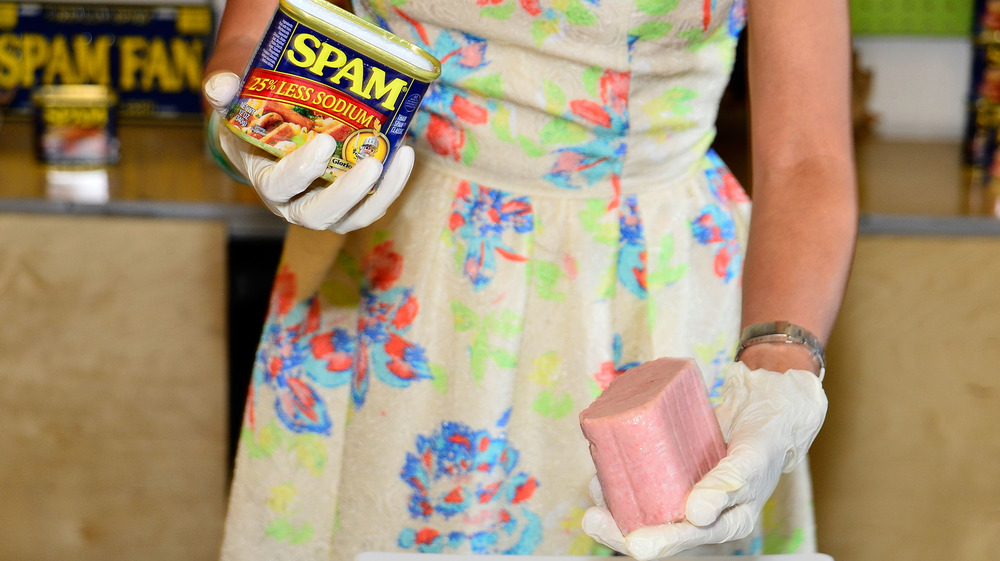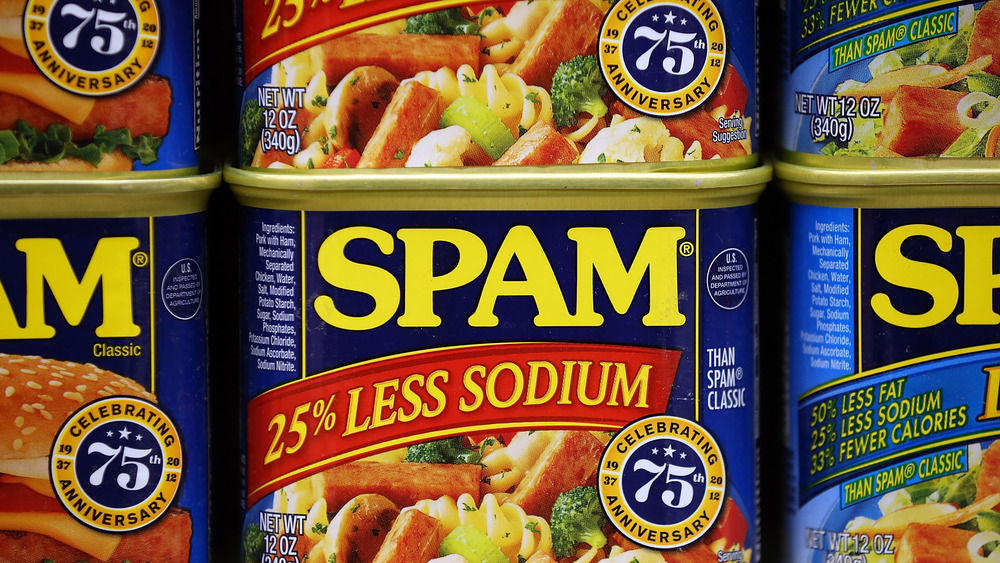Why You Should Rethink Eating Spam
Are you a Spam fan? If the thought of Spam makes you shudder and think "mystery meat," well, you obviously haven't experienced Hawaiian cuisine in all its glory. Spam musubi is an improbably delicious mashup of seaweed, spam, and rice, and Spam fried rice will make your leftover rice and veggies next level. Spam fries are low-carb junk food at its finest, and there's a whole range of Spam flavors out there that take what was already a pretty good thing into something downright yummy all on its own. (Admittedly, Pumpkin Spice Spam might have been a bit over the top.)
If you're still a Spam skeptic, though, you do have a few good reasons to remain so, all of them health-related. Mashed spoke with nutritionist, chef, and food writer Robin Miller on the subject of Spam, and she went straight to the label to point out everything that's wrong with the product. "At first glance, the ingredient list seems pretty simple," she says, since there are just six ingredients in all: pork with ham, salt, water, potato starch, sugar, and sodium nitrite. Miller says "of those six, you need to consider three," and then proceeded to walk us through why 50 percent of the ingredients in Spam can be harmful to your health.
Eating Spam can be risky business
The first ingredient Miller objected to was "pork with ham." While it's nice to know that meat of some sort plays such a solid role in Spam, Miller says pork is "actually a pretty fatty ingredient," since a two-ounce serving has 16 grams of fat, 6 of those of the saturated variety.
The next ingredient Miller's not too thrilled about is salt. This same serving contains 790 milligrams of sodium, which she says is "half of your recommended max for the entire day." If you're going by the current US Food and Drug Administration recommendation of 2,300 milligrams of sodium, it's just slightly over one-third. Still, if this Spam serving helps tilt your sodium intake into the danger zone, Miller warns that "a surplus of sodium triggers your body to hold excess fluid, increasing blood pressure and putting a burden on your heart." This, she says, can "increase ... your risk of stroke, heart failure, osteoporosis, stomach cancer, and kidney disease."
The last ingredient that raises a red flag for Miller is sodium nitrate, something she cautions "can damage our body's cells and morph into molecules that cause cancer and type 1 diabetes." If exposed to high heat, she says these nitrates can also form carcinogenic nitrosamines. Miller does say that "Spam is not unlike many other processed meats," but as with hot dogs, ham, bacon, sausage, riding roller coasters, and so many of life's other little pleasures, it can't be enjoyed risk-free.

